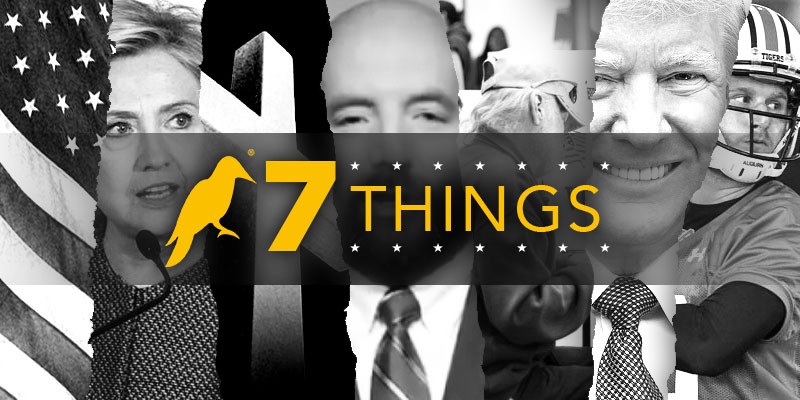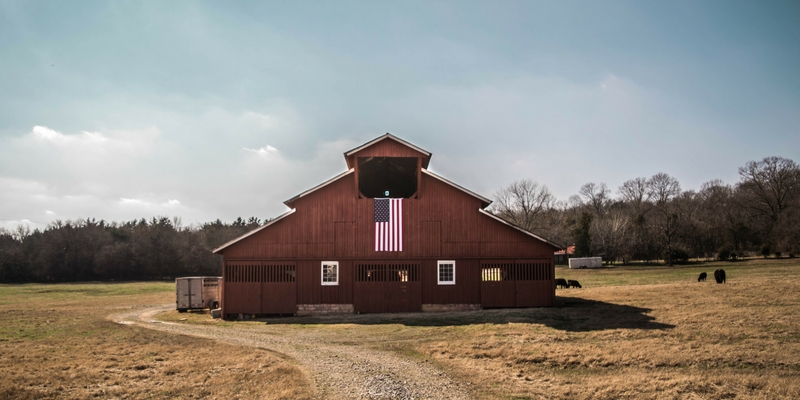
The 7 Things You Should Be Talking About Today
1. The state of Alabama gave Toyota and Mazda $379 million in incentives to bring up to 4,000 jobs to the state
— Tax credits make up the bulk of the incentives offered from the state including a $210 million investment credit, $39.3 million in sales and property tax abatements and a $90.6 million payroll credit.
— The state will lay out some cash for this deal. The state will provide $20 million in training, $20 million in capital reinvestment, and almost $20 million in infrastructure.
— Even the president is excited. Trump tweeted, “Great news as Toyota and Mazda announce they are bringing 4,000 JOBS and investing $1.6 BILLION in Alabama, helping to further grow our economy!”
2. Not everyone is happy about the Toyota/Mazda deal
— State Senator Dick Brewbaker tweeted, “I spent a few millions expanding my dealership to Prattville, created 50+ jobs ( with health insurance) and didn’t even get a thank you note from the State.”
— AL.com’s John Archibald opined, “I bitch about the willingness to commit money to corporations to move here, but the unwillingness to invest in the people who live here. How much is the incentive?”
— Alabama Political Reporter’s Josh Moon sulked, “Ivey says the avg pay at Toyota-Mazda will be $50k. I mean, that’s not a bad salary. But man, I’d love to see a comparison between this and the car plants of a generation ago.”
3. President Donald Trump backtracks on his DACA/border wall backtrack
— The president angered many allies by seemingly softening his stance on his signature campaign promise on Tuesday.
— On Wednesday, the president reaffirmed his position that any deal on DACA would have to include funding for the wall.
— At a press conference, he stated, “It’s got to include the wall. … Any solution has to include the wall because without the wall it doesn’t work.”
4. President Trump denies collusion with Russia and demands the GOP “take control” of the investigation
— President Trump continues to call accusation of collusion a “Democrat hoax” and a “witch hunt”.
— Yesterday, the president implored GOP members of Congress to take over the Congressional probe.
— There are currently five investigations taking place in Congress, in addition to the Mueller investigation as well.
5. Alabama’s Voter ID law is upheld
— A federal judge dismissed a lawsuit against the state claiming it violates the Voting Rights Act and 14th and 15 Amendments.
— The lawsuit, brought by Greater Birmingham Ministries, the Alabama NAACP, and others, claiming voter suppression is the intention of the law.
— Alabama’s Attorney General Steve Marshall, made it clear that no one is prevented from voting, “Alabama’s voter identification law is one of the broadest in the nation with procedures in place to allow anyone who does not have a photo ID to obtain one. The court order makes this point exceedingly clear”
6. Democrats continue to pretend they don’t have a sexual harassment problem in their party
— Democrat lawmakers are preparing to bring sexual harassment victims to President Donald Trump’s State of the Union address as a sign of solidarity with the #MeToo movement.
— Some lawmakers have suggested they might bring President Trump’s accusers to the event, Rep. Lois Frankel suggested she might even hold “hearings” for the president’s accusers.
— Democrats have lost two members of Congress since this movement began. Many Democrats suggested Sen. Al Franken’s resignation over his admitted misconduct was unnecessary.
7. State Senator Clay Scofield has an idea that could help the Internet reach into rural Alabama
— Senator Scofield is planning on filing legislation to provide tax incentives to Internet providers who seek to expand broadband services into rural communities.
— The tax credit will be capped at $20 million, but it would require a $200 million investment to reach that limit.
— Alternative plans have been introduced as well, like a bill by Sen. Tom Whatley, that would allow government-owned networks to expand into rural communities.










